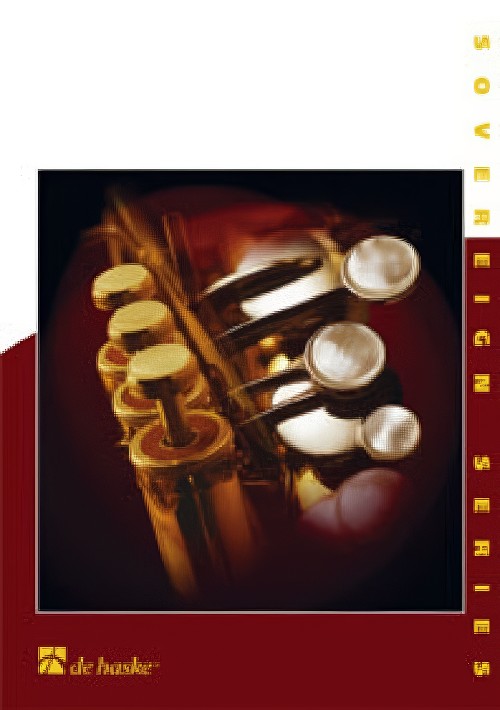-
 £179.99
£179.99Amazonia (Concert Band - Score and Pars) - Van der Roost, Jan
This major concert work consists of five movements:1st movement: La Laguna del Shimbe. Situated high up in the Andes mountains in Northern Peru are the Huaringas, a group of lagoons in isolated and mysterious surroundings. The water has healing powers and for centuries traditional healers have settled there in small villages. From far the sick come to the Huaringas to be treated in nightly rituals, in which the hallucinating juice of the San Pedro cactus gives the prophet a look inside his patient. The biggest lagoon is the "Laguna del Shimbe", one of the countless wells of the immense Amazon stream.2nd movement: Los Aguarunas. Further downstream in Northern Peru we come across the rain tribe of Los Aguarunas. It's a proud, beautiful and independent race, which has never succumbed to domination, not even from the Incas. They live from everything the forest has to offer: fish, fruit, plants... They also grow some crops and live as semi-nomads. They take their fate into their own hands and after having made contact with modern civilisation, they have integrated new elements into their lives without betraying their own ways.3rd movement: Mekaron. Mekaron is an Indian word meaning "picture", "soul", "essence". The Indians are the original inhabitants of the Amazon region. They either live in one place as a group or move around a large region. They all have their own political system, their own language and an intense social life. At the same time they are master of music and medicine. "Everywhere the white man goes, he leaves a wilderness behind him", wrote the North American Indian leader Seatl in 1885. As a result of these contacts with the whites, the disruption of most Indian societies began. (In this century alone, 80 tribes have vanished completely).4th movement: Ktuaj. This is the name of the initiating ceremony of the Krah tribe in the Brazilian state of Goias, in which young boys and girls enter adult life. They are cleansed with water, painted with red paint and covered with feathers, after which the ritual dance holds the entire tribe spell-bound.5th movement: Paulino Faiakan. In 1988 the Indian chiefs Faiakan and Raoni Kaiapo came to Europe to protest against the building of the Altamira dam in Brazil. As a result of the dam the Indians would be driven from their traditional land and enormous artificial would be created. The project was supported financially by, amongst others, the European Community. In February 1989 the Indian tribes around Altamira held a protest march for the first time in their history together. Amongst other things they paid tribute tot Chico Mendez, who, murdered in 1988, was the leader of the rubber syndicate and a fierce opponent of the destruction of the Brazilian rain forest. Brazilian and world opinion was awakened. The building of the dam was, albeit temporarily, stopped.Duration: 12:30
Estimated dispatch 7-14 working days
Searching for Brass Band Music? Visit the Brass Band Music Shop
